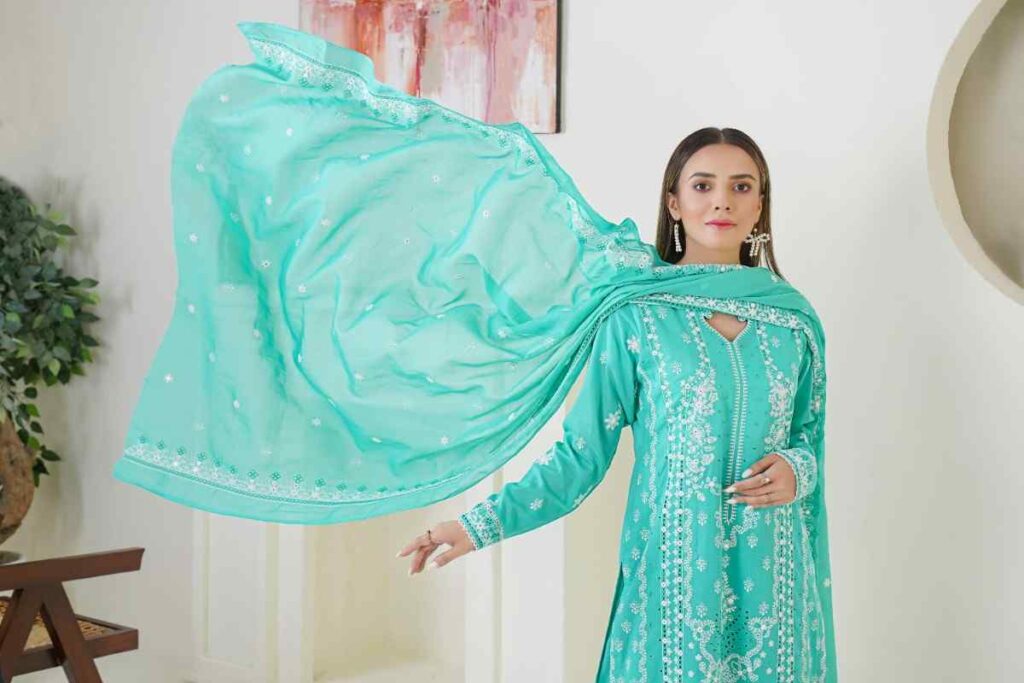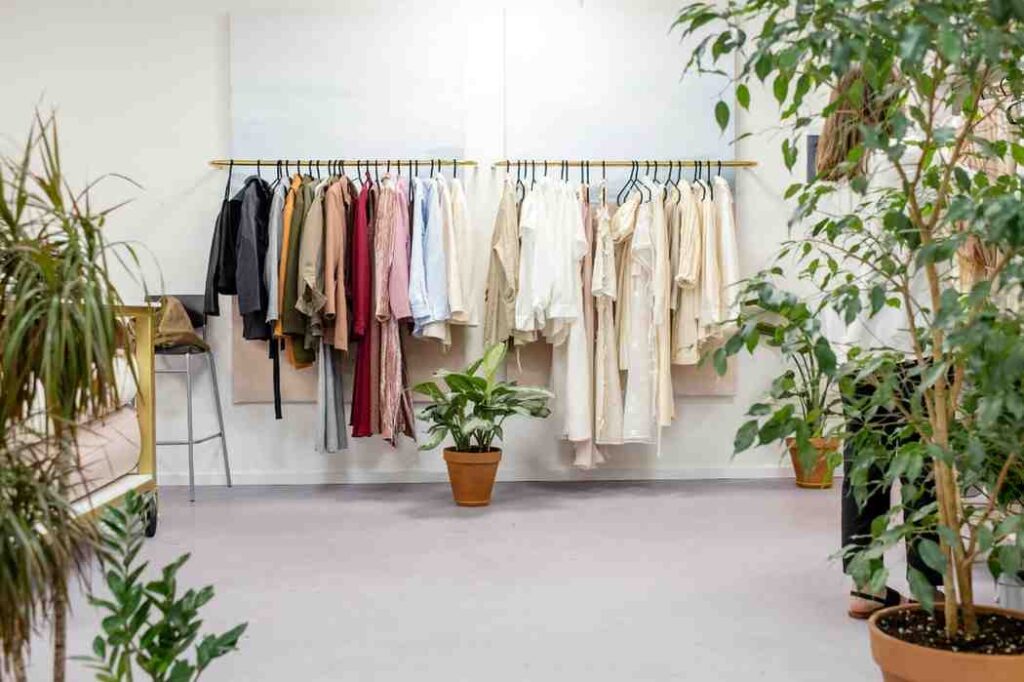Introduction: Design a Greener Future with Passion
Sustainable Fashion is a transformative field that blends style, ethics, and innovation to create clothing and accessories with minimal environmental and social impact. By prioritizing eco-friendly materials and ethical practices, it redefines the fashion industry. If you’re passionate about style and aspire to drive positive change, this career is your platform. This article explores the essence of Sustainable Fashion, detailing its core elements, career paths, and how Aime Connect can elevate your journey. Let’s dive into how you can craft fashion that’s both beautiful and responsible.
What Defines Sustainable Fashion?
Sustainable Fashion focuses on designing, producing, and distributing clothing in ways that reduce environmental harm and promote social equity. It encompasses using organic or recycled materials, minimizing waste, and ensuring fair labor practices. For instance, a designer might create a collection from upcycled fabrics or advocate for circular fashion models like clothing rentals. This field balances aesthetics with accountability, addressing issues like carbon footprints and worker rights. Beyond trends, it fosters longevity and transparency in fashion. By prioritizing sustainability, professionals reshape consumer habits and drive industry-wide change.

Your Path to Becoming a Sustainable Fashion Professional
To become a Sustainable Fashion professional, start with a Bachelor’s degree in Fashion Design, Sustainable Fashion, or Environmental Studies with a fashion focus. Practical experience is key, so pursue internships with ethical brands, NGOs, or sustainable startups. Building a portfolio of eco-conscious designs or sustainability projects showcases your commitment. Certifications in sustainable textiles, circular fashion, or ethical sourcing, offered by recognized bodies, enhance your credentials. Staying updated on green technologies and global standards sharpens your expertise. Networking with eco-designers, activists, and industry leaders opens career doors. By combining education, practice, and connections, you can lead in this impactful field.
Skills to Design with Purpose
Success in Sustainable Fashion demands a versatile skill set. Creativity and design skills are vital for crafting stylish, eco-friendly garments. Knowledge of sustainable materials, like bamboo or Tencel, and production techniques ensures responsible choices. Analytical skills assess supply chains and environmental impacts. Communication and advocacy build awareness and collaborate with stakeholders. Problem-solving addresses challenges like waste reduction or ethical sourcing. Digital literacy, including tools for lifecycle analysis or design software, enhances efficiency. Adaptability navigates evolving regulations and consumer expectations. By mastering these skills, you can create fashion that’s both innovative and conscientious.
Courses to Launch Your Sustainable Fashion Journey
Kickstart your Sustainable Fashion career with targeted education. A Bachelor’s in Sustainable Fashion or Fashion Design with a sustainability focus covers eco-materials, ethical production, and circular design. For specialization, a Master’s in Sustainable Fashion or Environmental Management offers advanced insights. Short-term certifications in upcycling, zero-waste design, or sustainable supply chains cater to niche roles. Courses in green marketing or textile innovation enhance versatility. Aime Connect provides curated programs blending theory with hands-on projects, ensuring you’re industry-ready. These courses empower you to develop expertise and stand out in the evolving fashion landscape.
Career Scope and Opportunities to Transform Fashion
Sustainable Fashion offers diverse career paths in a growing industry. You could work as a sustainable designer, ethical sourcing specialist, or circular fashion consultant for eco-brands, retailers, or NGOs. Roles in sustainability auditing focus on compliance, while advocacy positions drive policy change. In India, salaries typically start at INR 3-6 LPA, with growth as you gain expertise. The global demand for eco-conscious fashion, fueled by consumer awareness and regulations, creates robust opportunities. With roles in startups, luxury brands, and research, this field promises a rewarding career where you can pioneer sustainable style.
Top Countries for Sustainable Fashion Careers
Certain countries excel as hubs for Sustainable Fashion professionals due to their commitment to eco-innovation and fashion. Sweden leads with sustainable brands like H&M’s Conscious line and robust recycling initiatives. The Netherlands excels in circular fashion, with Amsterdam’s innovation hubs. India’s rich textile heritage and growing eco-market offer roles in organic and handwoven fabrics. The United Kingdom is strong in sustainable fashion education and activism, centered in London. The United States drives eco-fashion in cities like Los Angeles. These nations invest in green infrastructure, offering competitive salaries and varied roles tailored to your skills and goals.
Time Commitment to Master Your Craft
The duration of Sustainable Fashion courses varies by level. A Bachelor’s degree typically takes 3-4 years, covering sustainable design, ethics, and production. A Master’s degree, ideal for advanced roles, requires 1-2 years. Certifications in areas like sustainable textiles, ethical fashion, or lifecycle assessment can be completed in 3-12 months. Diploma programs, achievable in 1-2 years, suit those seeking quicker entry. Aime Connect’s tailored courses offer flexible schedules, blending online and offline learning for convenience. By investing this time, you gain the expertise to create fashion that’s both stylish and sustainable.
Online or Offline: Which Path Threads a Greener Career?
Choosing between online and offline Sustainable Fashion courses depends on your preferences. Offline programs offer hands-on experience in eco-studios, textile labs, or sustainable workshops, ideal for mastering techniques like upcycling. They foster networking with peers and eco-mentors. Online courses provide flexibility, allowing you to study while balancing commitments. They include virtual projects and sustainability analysis tools to simulate real-world tasks. Hybrid models, combining online theory with in-person training, offer a balanced approach. Aime Connect’s diverse offerings ensure quality education in a format that aligns with your eco-conscious goals.
Aime Connect: Your Compass for Sustainable Fashion Success
Aime Connect transforms your Sustainable Fashion journey with innovative tools and resources. The platform offers personalized course recommendations, aligning programs with your career goals. Interactive modules, including virtual eco-design projects and supply chain simulations, enhance your practical skills. You’ll benefit from webinars and mentorship by industry experts, keeping you informed about sustainability trends. Aime Connect’s placement support connects you with top employers in eco-brands and NGOs. Its intuitive interface ensures a seamless learning experience, empowering you to design with confidence and purpose.
Conclusion: Shape a Sustainable Future with Fashion
Sustainable Fashion is a visionary field where your passion for style can drive environmental and social change. By pursuing relevant courses, honing essential skills, and leveraging Aime Connect’s resources, you can turn your vision into a thriving career. From designing eco-collections to advocating for ethics, the opportunities are vast and meaningful. Whether you choose online or offline learning, the right education equips you to innovate with purpose. Take the first step today and join a global community redefining fashion. Your journey to sustainable mastery begins now—embrace it with commitment.
Thank You
Signup and enjoy free special features from Aime Connect Education Portal. Login to our portal: https://www.aimeconnect.com



